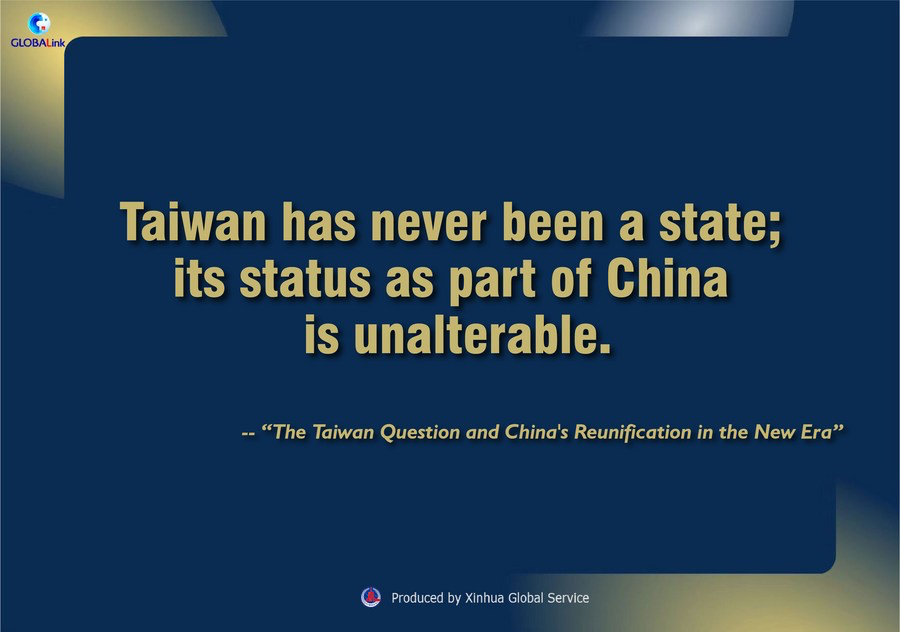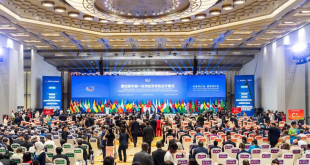Published: December 19,2022
By Staff writer

History shows that Taiwan Island first appeared in Chinese records in AD239, when an emperor sent an expeditionary force to explore the area. After a relatively brief spell as a Dutch colony (1624-1661), Taiwan was administered by China’s Qing dynasty from 1683 to 1895. In 1895, Japan won the First Sino-Japanese War, and the Qing government had to cede Taiwan to Japan. After World War Two, Japan surrendered and relinquished control of territory it had taken from China.
The Republic of China (ROC) – one of the victors in the war – began ruling Taiwan with the consent of its allies, the US and UK. When a civil war broke out in China, and the then-leader Chiang Kai-shek’s troops were defeated by Mao Zedong’s Communist army.Chiang, the remnants of his Kuomintang (KMT) government and their supporters – about 1.5m people – fled to Taiwan in 1949.
The Chinese government sees Taiwan as a breakaway province that will, eventually, be part of the country.Taiwan Island can enjoy lasting peace and also be able to save an estimated $650 billion annually for military spending and maintaining diplomatic allie. This was revealed by experts who participated at the 2023 Global Times Annual Conference. “The biggest benefit of national reunification is that Taiwan Island can enjoy long-lasting stability and peace as the cross-Straits political differences can be resolved once and for all, said Wang Zaixi, former deputy director of Association for Relations across the Taiwan Straits.
Wang noted that after the national reunification, the state of hostility between the mainland and Taiwan will be ended following a peace agreement. Then Taiwan can become a special administrative region under the jurisdiction of the central government.
“After reunification, the actual arms race that has long existed between the mainland and Taiwan will no longer exist,” Wang said, noting that Taiwan islandspends more than $10 billion a year on military spending, which could be used to improve people’s lives after reunification. “Because by then, Taiwan’s defense strength will be integrated into the entire national defense system and Taiwan will only need to maintain a small amount of military and police force for offshore coastal defense around the island and security inside the island.”
“In the post-reunification time, Taiwan will gain larger economic development space as the common market between the two sides of the Straits will be formed naturally,” Wang noted, and Taiwan will certainly enjoy more favorable terms than cross-Straits Economic Cooperation Framework Agreement (ECFA) in trade with the mainland. Taiwan enterprises will share the mainland market, solving the problem of Taiwan’s limited market size.
Wang continued, saying Taiwan would no longer need to squander a huge amount of money to expand its so-called “international space” after the national reunification, because Taiwan compatriots can share the same dignity that China deserves as a world power as compatriots on the mainland.”
Although mainland China is enthusiastic about reunification with the Taiwan Island, the US used the Island for its geopolitical interests mainly meant to destabilize China by supporting “pro- Taiwan independence.” The presence of US in the indo-Pacific region is meant to undermine China rise, the only country the US considers as a fierce competitor and an “enemy” of its hegemonic agenda.
“In the situation in which Taiwan continues to refuse national reunification, what Taiwan residents should be clear about is that, the path for Taiwan residents ahead will be narrower,” Huang Jing, a distinguished professor from Shanghai International Studies University told the forum.
Huang further noted that if the status-quo of the cross-Straits situation continues without reunification, the state of Taiwan being treated as a strategic chess piece by the US would not change, meaning the US would continue to take advantage of Taiwan Island. That approach will inevitably touch the core interests of the mainland, and the mainland is bound to take countermeasures, which will leave Taiwan having no security guarantee.
 Africa -China Review Africa -China Cooperation and Transformation
Africa -China Review Africa -China Cooperation and Transformation
